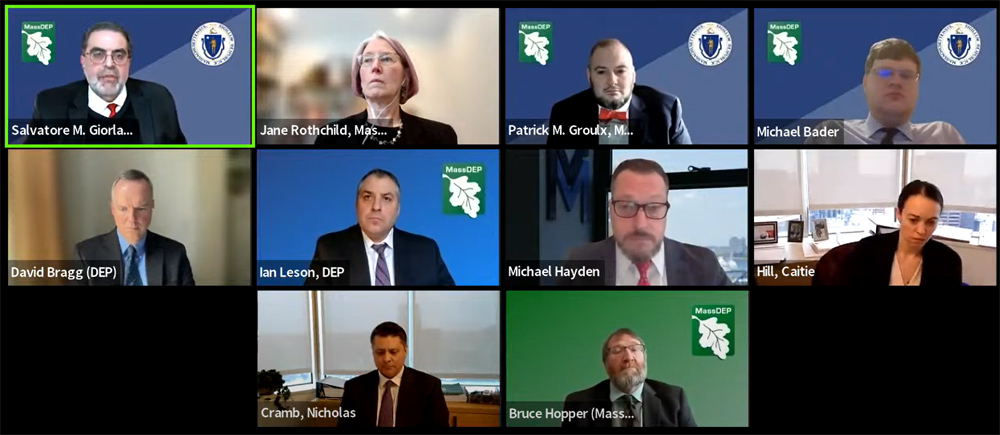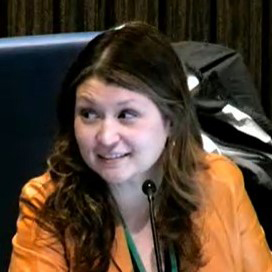NYISO CEO Rich Dewey on Jan. 31 spoke to the Management Committee about the ISO’s priorities for 2024 and its accomplishments in 2023.
Dewey called 2023 “a very successful year” and praised NYISO’s staff and stakeholders, urging continued collaboration as the ISO continues working on the challenge of balancing fossil fuel retirements with the introduction of new renewable resources in New York.
“As we look ahead at this grid in transition and the change that we’re seeing across the industry,” Dewey said, “the pace with which we need to navigate these changes is only increasing, which means that we’ve all had to adapt, be flexible and think creatively about how we adapt our market rules and our processes in the year ahead.”
Dewey said improvements made last year to the ISO’s interconnection queue already have ed to a 200% increase in the pace of study completions compared to historical performance. NYISO’s continued work to comply with FERC Order 2023 will be a significant effort in 2024. He also said proposals already submitted to the commission would help remove many of the barriers existing in the interconnection process. (See FERC Approves NYISO Waiver on Interconnection Study Requirements.)
A top priority this year is monitoring the integration of new projects with the grid and managing the phaseout of existing supplies, while simultaneously accommodating the growing demands of the electrification of housing and transportation. (See NYISO’s 10-Year Forecast: Challenges Ahead, but No Immediate Needs.) “Whether it’s offshore wind or other renewable resources, we’re still seeing supply chain issues, as well as interest rate issues,” he said.
Dewey also discussed the public policy transmission need (PPTN) solicitations initiated by the state’s Public Service Commission to bring OSW from Long Island into New York City. Wind power would help fill predicted reliability shortfalls and achieve the state’s goal of generating 9,000 MW from OSW by 2035. (See New York PSC Seeks Rehearing of RTO Adder for Offshore Tx Project.)
He said NYISO is “well positioned” to launch the next OSW PPTN, which would be the largest it’s undertaken. He remains “optimistic” the effort will be “groundbreaking in terms of the ability to provide new transmission infrastructure that will maximize both the performance of OSW and help mitigate the costs of the buildouts necessary to interconnect them.” (See NYISO Previews New York City Transmission Needs Assessment.)
Market development and talent acquisition also will be key priorities for 2024. Dewey said he will “continue to position NYISO’s markets at the top of the stack nationally in terms of efficiency and performance.” This can’t be done successfully, he said, without first attracting, retaining and leveraging the “creative, highly intelligent, dedicated and motivated individuals that remain the primary assets for [NYISO].”
He noted that sector meetings will be held in the first weeks of March, and interested parties must register before Feb. 16. The two-day joint Board of Directors and MC meeting is set for June 10. Dewey also encouraged market participants to sign up for the strategic planning sessions in 2024, which will culminate in the annual board meeting in June.
Fast-start Pricing in DAM
The MC voted to approve and recommend that NYISO’s board approve proposed tariff revisions that would provide all fast-start resources with their physical schedules for the day-ahead market (DAM).
The revisions, approved by the Business Issues Committee earlier in January, stem from FERC orders requiring the ISO to modify how it reflects and prices fast-start resources in its energy markets to ensure they’re not scheduled below their minimum generation levels. (See NYISO Approves Update to Fast-start Pricing in Day-ahead Market.)
NYISO had implemented the changes but realized it inadvertently extended DAM eligibility to some units that now are receiving ideal schedules below their minimum generation level, potentially causing operational inefficiencies or market imbalances. The approved revisions would provide these units with physical schedules, respecting their minimum generation constraints and preventing them from operating inefficiently.
Following board approval, NYISO plans to submit the revisions to FERC in March.

